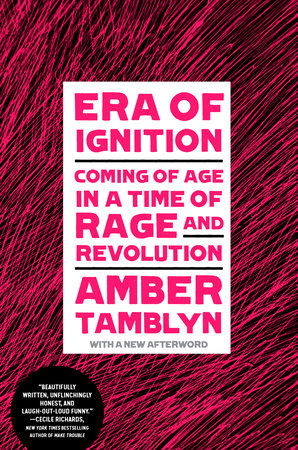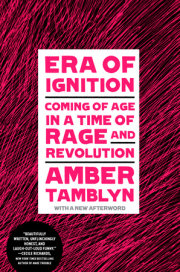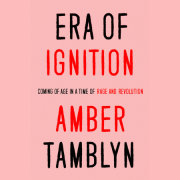1
On the bar in front of me, a tea candle meekly flickered at the end of its wick as I sat next to my husband and wondered how I was going to tell him what I had to tell him. We had just gotten married two months before; it was 2012 and we were enjoying the world of newlyweds, our life together on its new trajectory. But my life alone was flatlining. A tire spinning in the mud. A roller-coaster car stuck upside down in midair. I swiveled the ice cubes in my glass full of bourbon and stared down the candle’s croaking ember. That’s me, I thought. That’s me right there in the form of fading fire.
The flame dwindled as I gulped down my bourbon and proceeded to tell my husband that I was pregnant but was planning to terminate the pregnancy. I’ll never forget the look on his face, a shattering I had instantly caused; a spark of joy pummeled into anguish. He was devastated in that moment, destroyed and blindsided. I cannot remember any other time in my life when I had inflicted this type of pain on another person, especially a person who I loved so much and who was—is—my entire world. I didn’t want to hurt him. But I made the choice because I didn’t want to hurt anymore either. I had been experiencing a long-term devastation that was omnipresent; an all-consuming, all-encompassing kind of grief. I had come to the end of one very long chapter of my life as a child actress, and now as an adult I was fully out of inspiration and devoid of direction. I was twenty-nine years old and completely lost, lost in a way that I couldn’t see a future for myself, lost in a way that isolated me from others. Lost in a way that felt perilous.
I had spent so much of my young life in the entertainment business performing the moments of other people’s lives as an actress. The only thing I had ever known how to do was channel someone else’s art, be someone else’s muse, live someone else’s life, speak someone else’s words. I began my career when I was just nine years old, acting in a few low-budget films, and by the time I turned eleven, I landed a major role on the soap opera General Hospital, a job that would last seven years. While other teenagers were going to school to get an education, I was going to a film studio to play a heroin-addicted former model whose mother had died of cancer. After I left that show at the age of seventeen, I guest-starred in a few iconic TV shows like Buffy the Vampire Slayer, then I landed a starring role in the cult TV show Joan of Arcadia and didn’t stop working, or stop to think about stopping working, for the next ten years.
This is not to say I had a bad childhood; I just had a confusing one. When you’ve spent your whole life pretending to be other people for a living, it is sometimes hard to know what you are capable of becoming or what you will want once you’ve stopped. So here I was sitting in a bar, a grown woman who owned a house and a car and had a damn good man in my life, and yet I had absolutely no motivation for living anymore. I was in a deep psychic holding pattern with no sense of what was coming next or who I was. I wasn’t experiencing suicidal ideation per se, but I was craving some kind of existential ceasing. I desperately needed to find a way to start over again. And I knew that life couldn’t stay the way it had been for me, that I had so much more to offer besides auditioning for acting roles. But what I had been experiencing was a sort of invisible alphabet: I saw my life at A and could see the bright, glowing Z of my potential in the distance but couldn’t manifest the letters in between to get there.
In my early twenties, years before I got married, I could feel the dawning of my own personal doom. I could feel myself starting to come undone. The identity cast I had spent years plastering for myself was beginning to crack and suddenly the things that defined me were no longer feeding me. I would go into auditions half-assed, half-caring, half-prepared. When I was twenty-eight, I went in to read for the director of a film starring Meryl Streep and couldn’t seem to retain a single line of the short monologue I had prepared from the script. Normally I would’ve excelled in a situation like this. But this time, my body and my mouth wouldn’t let me tell this story that was not my own. I began to sweat and could only tell the director I was sorry. “Don’t worry,” he said to me kindly, “take your time.”
Taking my time wasn’t the problem. My relationship to myself and the world was the problem. Being a lifelong object for a living was the problem. Creative stasis was the problem. I left the audition and broke down in tears in the elevator, shaking and confused. When the doors opened onto the lobby, an actress who looked just like me stepped in as I stepped out, neither of us saying a word to each other, like two mirrors reflecting a single, hollowed-out body.
Things were bad and seemed to only be getting worse. A few weeks after the audition experience, on the eve of my wedding, my agency of fifteen years dropped me as a client. My agent was extremely apologetic, saying she didn’t even realize it was the weekend of my wedding. Let this tell you everything you need to know about how invested she was in me. Moments later, my fiancé, David, came into my office and I couldn’t bring myself to look him in the eye. “You shouldn’t be with me,” I told him with tears dribbling down my chin. “You should be with someone who has their shit together.” He held me tight and said, “Honey, Salma Hayek is already married, you know that.”
Being dropped by that agency was just one bulb on the string of burned-out lights that felt like it was becoming my life. That night, dejected, humiliated, and drunk, I went through my closet and grabbed a pair of the most expensive high heels I owned and carried them out to the East River near where I lived in Brooklyn. I stared at the long sharp stilettos in shiny patent leather. I had spent so much money on these stupid heels because I was told by a stylist that I should. I didn’t even know if I liked high heels. Was this how I liked to dress, or was this just how other people liked to see me dressed? Everything I thought I knew about myself felt like it was crumbling, breaking apart into tiny question marks. Ceremoniously and rather dramatically, I took these meaningless shoes, artifacts of my bygone success, and threw them into the water, one by one, each an unsure wish for a nameless future.
“Dear Shoe: Grant me the strength and wisdom to get through this bewilderment. Dear Other Shoe: I don’t want to be just an actress anymore. I want to direct movies and write novels and polish Beyoncé’s belt buckles. Please, Other Shoe. Help me help myself.”
I staggered toward a nearby monument in the park and pulled my pants down to pee on a statue celebrating some famous man’s war. A woman jogged by and pretended not to notice me and my face, a Rorschach test of mascara, crouching and pissing on a giant bronzed replica of a cannon. “Sorry,” I muttered while peeing as the woman passed me, “I couldn’t hold it in anymore.”
Sitting with David at the bar that night a few months after our wedding, I explained with aching clarity what else I couldn’t hold in anymore. How unprepared I was, on any level, to bring a child into the world and be responsible for that child. I explained that I was afraid of what kind of parent I would be, or, worse, couldn’t be. I was scared that I would subconsciously place blame on the baby for taking me away from my career or that I would harbor some strange jealously for my child, who would have the normal childhood I never got to have. That I would take out all my bullshit on that kid, that I would hate myself for it and in turn, hate the child, too. I had work to do—a lot of it—before I could be the mother I was capable of becoming. Before I could be the woman I want destined to become.
After I terminated the pregnancy, David and I did not speak for weeks. I didn’t blame him for that; I didn’t want to speak to me either. If I could’ve temporarily exited my own body, I would’ve. I would’ve abandoned myself right then and there. But I took morbid comfort in knowing I was going to be the best at my own self-hatred, that there was no one in the world who could hate me more than I could at that moment. At least I was successful in that. At least I was winning at hate.
I spent the next month grieving heavily for the loss of many things, both tangible and ungraspable, a culmination of my identity, my career trajectory, my happiness, and my failed motherhood. I lopped off six inches of my hair with a pair of kitchen scissors as David tried to disappear into our couch, avoiding me. I bought myself some balloons and tied a lock of the hair to one of them with a note that said, “May a witch find this and cast the kindest of spells.” I spent evenings combing over the comments section of my IMDb page, seeking the worst possible things people had written about me and telling myself they were all correct: I am fat. I am a has-been. I am the best character in The Sisterhood of the Traveling Pants.
Copyright © 2019 by Amber Tamblyn. All rights reserved. No part of this excerpt may be reproduced or reprinted without permission in writing from the publisher.










